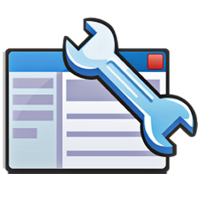
Google isn’t really in the search business, it’s in the data business. Search just happens to be the company’s most popular free product.
Many people don’t know about the amazing wealth of free tools Google offers, though. After all, what good is data if it can’t be accessed, searched, filtered, sorted, analyzed and used to some benefit?
Google benefits from the data in obvious ways via its far-reaching ad network. But the search firm has been incredibly smart with its data: It allows free access to sanitized sections of data via an ever-growing suite of tools.
These free tools help to further entrench Google, as well as allow the company to collect even more usage data from the users of the free tools. Free Web apps like Gmail, Google Calendar, Blogger, Maps and Google Docs give the search giant a window into the usage patterns of billions of users.
Add to that its entry into telephony, television and the browser wars, and you start to understand the scope of Google’s vision. It is collecting unimaginable amounts of usage data from the most critical communication channels, likely to expand its ad networks. Brilliant.
What’s more, Google opens a few doors into its data goldmine to help online marketers earn — and reinvest — more money on their ad network, and create a better Internet experience for their users. Google’s free tools allow the SEO everyman access to high-quality tools that you might think only major corporations could afford.
Depending on tools that draw solely from Google data does inherently skew the analysis and the recommendations. But with any tool you have to consider the source of the data as part of the analysis process. In SEO there is no single pure data source, so you may as well pull from the largest and freest, in addition to other trusted sources.
CORE SEO ANALYTICS TOOLS
Google Analytics and Google Keyword Tool stand head and shoulders above the rest of Google’s free tools as foundational underpinnings to any SEO strategy. Think of it as the difference between understanding what you already have, and researching what you want to have.
Google Analytics offers a free and relatively easy-to-implement analytics solution with access to a key piece of SEO data — one that requires custom implementation in the major paid analytics packages: Entry Page URL. In addition to the usual visits, orders, sales, bounce rates and other online metrics, Google Analytics allows you to easily associate natural search visits and sales to the keyword and entry page.
Think about it: You don’t optimize the whole site for a keyword phrase, you optimize a specific URL. You don’t build links to an entire site; you build links (ideally) to specific pages targeting specific keyword phrases.
To determine if your SEO activities are successful, you have to do the analysis on the impact to the specific keyword and entry page URL. Google Analytics is also faster and easier to navigate than the other major analytics packages I’ve used.
While Google Analytics tells you what keyword phrases and URLs your site is and isn’t performing for today, Google Keyword Tool offers a window into which keyword phrases would be most beneficial to perform for going forward.
Using analytics data as keyword research will only result in receiving more of what you already have. But basing optimization decisions on keyword data from Google Keyword Tool positions you to capture more traffic and sales for keyword phrases you’re not winning today.
STRUCTURAL SEO TOOLS
The first pillar of SEO is optimizing a site’s structure. Googlebot can’t deliver content to its users that Googlebot can’t crawl, so site architectures that prevent efficient crawling and indexing are detrimental to Google’s goals.
To help Webmasters help themselves, Google provides a suite of Webmaster tools at Google Webmaster Central, a blog and a companion YouTube Webmaster Central Videos Channel. (See “Where to find it” on page 22.)
After site owners verify ownership of a site, Google offers Webmaster tools to:
-
Manage crawl: XML sitemap submission and indexation rates, crawler error details, crawl stats, robots.txt tester, parameter handling
-
Manage content and architecture: internal links report, meta data and title tag issues, various keyword relevance reports
-
Manage domain: domain changes and preferences, geographic targeting
-
Manage search result appearance: block sitelinks, rich snippets tester
These tools are useful to diagnose specific SEO issues, such as a sudden drop in product sales, or in specific instances like a domain move. You might not need them every day, but they’re crucial to have in an emergency.
It’s a good idea to review the other reports and tools monthly to make sure things are running smoothly. But analytics visits and sales data are the true measure of “running smoothly.”
One of the most useful of Google’s free tools is actually Google Web Search itself. Stringing different advanced operators together in the search box returns detailed indexation information that can be used to uncover crawl barriers and indexation issues.
For example, if a site offers 4,000 product SKUs, there should be 4,000 product URLs available to index. Let’s say that product URLs all contain an SKU number, like this: http://www.example.com/prod/sku-1234/cat-23/. Googling a query of site:www.example.com inurl:sku would reveal roughly how many and which product URLs Google has indexed.
SEO CONTENT TOOLS
Keep in mind that Google’s results for these types of queries tend to be ballpark rather than pinpoint. A starter set of advanced operators can be found at http://www.google.com/help/cheatsheet.html.
Similar to Web search, advanced operators can be used in the Google Toolbar as well. In addition to offering a persistent search box in the browser’s toolbar, the Google Toolbar provides access to the PageRank bar, the highlight option and shortcuts to many of Google’s other free tools.
The PageRank bar changes to display the PR of the current Web page as the user surfs. While this visible indicator of PageRank is controversial based on its infrequent updates and intentional inaccuracies, it can provide a quick indication of the flow of link popularity through a site. Just don’t bet the farm on its data.
The highlighter shades keywords on the page based on the word entered into the search box. It’s a handy way to identify the frequency and phrasing of keywords on a page, and useful for presentations.
SEO LINK-BUILDING TOOLS
When a site is crawlable and indexable, the content on the pages is the next pillar of SEO. Content optimization centers on using the most popular, relevant keywords in the most prominent, crawlable areas of a page template.
Google will suggest popular keywords, but of course it can’t write content for a site. Google can, however, suggest similar words in other languages:
-
Google Translate: Handles 50+ languages and takes text, URLs or documents as input.
-
Google Language Tools: For a query in the user’s language, Google translates the query to the desired language, completes the search in that language, and returns the search results in the user’s language.
Next Page: Social and Reputation Monitoring Tools

For example, if the user Googles an English query for “blue widget,” with Spanish language selected, Google would translate that query to “widget azul” and return results for “widget azul” translated back to the user’s English language.
For sites with limited language support, these tools can jumpstart keyword research in additional languages. But don’t rely on it as a translation/internationalization tool if multilingual sales are truly important.
In addition to its primary keyword tool, Google also offers a couple of quick comparison keyword tools that provide fast snapshots:
-
Google Suggest: Start typing your search phrase in the search box or the Google Toolbar and Google suggests phrases you may be looking for. More than a helpful usability feature, Google Suggest may help you find a keyword gem that you wouldn’t have otherwise thought of.
-
Google Trends: Enter a search phrase and Google Trends will show a search volume trend graph for the past few years. There are no numbers associated with the graph, but it shows the relative popularity of two or more keywords. It’s great for presentation visuals.
-
Google Insights for Search: Like Google Trends on steroids. Add specific regions, categories, time frames and properties to show more detailed trends. Also great for presentation visuals.
SEO LINK-BUILDING TOOLS
External links represent the third pillar of SEO. Links are like little votes of confidence to the search engines that the page being linked to is valuable and relevant. Google’s link-building tools are combined with the tools we’ve already discussed:
-
Google Webmaster Central: The external links report in Webmaster tools is the most complete report of external links available. The report is displayed as a rolling several-week listing, so links that haven’t been crawled recently won’t be reported and reports aren’t archived.
This report is available only for verified sites, so you must still do competitive link analysis elsewhere. Yahoo Site Explorer provides free access to up to 1,000 external links for any URL.
-
Google Web Search: As discussed earlier with the site: query, Google honors the link: advanced operator. For example, Googling link:www.example.com returns a sampling of the links Google chooses to display publicly.
This number is commonly far smaller than the number reported in Webmaster tools, and should be used only as a relative number across competitive sites rather than as a definitive count.
Google provides a final link-building tool, the Google Directory (http://www.google.com/dirhp). The good news is that submission to this vast and trusted directory is free.
The bad news is that it’s powered by DMOZ, which has slowed acceptance rates to a trickle in recent years. There’s no risk to submitting if a site isn’t already listed, but be prepared to be extremely patient or disappointed.
SOCIAL AND REPUTATION MONITORING TOOLS
Keeping tabs on the buzz swirling around brands, people and competitors can be daunting. Google offers a series of free tools designed to filter the tsunami of online information down to the stream relevant to a user’s keyword targets:
-
Google Alerts: Search results on any word or phrase delivered to an e-mail inbox. Google offers several frequencies, lengths and levels of detail.
-
Google Reader: Keep up on the industry’s critical news, sites and blogs in a single-feed reader without having to visit each site individually.
-
iGoogle: This enables you to create a personalized Google homepage with gadgets, feeds and the option to embed many of Google’s other free tools in a single page. With a search box, of course.
We’ve barely scratched the surface of Google’s free tools, but each of these tools has been weighed and reviewed by the SEO community at length. If you see one you like, Google it and learn more.
Or just give it a test drive. What do you have to lose — it’s free!
Jill Kocher ([email protected]) is director of natural search services at SEO agency Covario (formerly Netconcepts).
GOOGLE
OPENS A FEW DOORS INTO ITS DATA GOLDMINE TO HELP ONLINE MARKETERS
-
EARN (AND REINVEST) MORE MONEY ON THEIR AD NETWORK, AND
-
CREATE A BETTER INTERNET EXPERIENCE FOR THEIR USERS.
GOOGLE’S FREE TOOLS ALLOW THE SEO EVERYMAN ACCESS TO HIGH-QUALITY TOOLS THAT YOU MIGHT THINK ONLY MAJOR CORPORATIONS COULD AFFORD.
WHERE TO FIND IT:
Google Alerts: http://www.google.com/alerts
Google Analytics: http://www.google.com/analytics
Google Directory: http://www.google.com/dirhp)
Google Insights for Search: http://www.google.com/insights/search/
Google Keyword Tool: https://adwords.google.com/select/KeywordToolExternal
Google Language Tools: http://www.google.com/language_tools
Google Reader: https://www.google.com/reader
Google Toolbar: http://www.google.com/intl/en/toolbar/ff/index.html
Google Translate: http://translate.google.com
Google Trends: http://www.google.com/trends
Google Webmaster Central: http://www.google.com/webmasters/
Google Webmaster Central Blog: http://googlewebmastercentral.blogspot.com
Google YouTube Webmaster Central Videos Channel: http://www.youtube.com/GoogleWebmasterHelp
iGoogle: http://www.google.com/ig